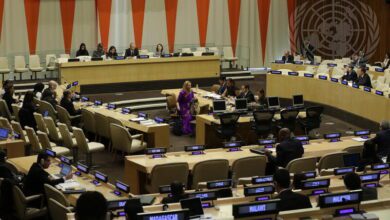Removing Petrol Subsidy: Need For Cautious Handling

The issue of petroleum product subsidy has remained a nagging one that has attracted public discourse over the past decades. Against the backdrop of the fiscal challenges of the various tiers of government, the recent indication by government of plans to end the petrol subsidy regime before the end of first half, 2022, has rekindled public interest in the matter.
At this point in time, the existence of subsidy and the attendant payments are not in doubt considering the reported landing cost of petrol per litre which far exceeds the pump price per litre. But it appears that some important questions are not being addressed, for example, for an oil producing and exporting country, is the case for subsidy removal strong? If yes, what should be the framework or basis for ending the petrol subsidy regime and allowing market forces to determine the price of petrol per litre? If this is answered satisfactorily, what should be the timing for the elimination of the subsidy so as to minimise the costs in relation to the benefits?
In this piece, I argue that there is a strong case for subsidy removal but that the planned framework/basis for the removal seems inappropriate and that the timing is inauspicious considering the totality of the current macroeconomic and social challenges.
It has been argued that Nigeria is a major oil producing and exporting country.
Therefore, its citizens and economic agents should not pay market prices for petroleum products. There is some sense in this. Besides, subsidy, if well administered and targeted, can be a good tool for improving welfare, especially of the low income groups. But the problem though is that subsidy on petrol in Nigeria is not targeted. It applies to both the rich and poor consumers and some people have indeed argued that subsidy is elitist and it is the rich that benefit from it disproportionately. Very importantly, the integrity of subsidy payment has been very much doubted; before the NNPC took over the importation of petroleum products under the present government, it was well known how subsidy was paid to importers for fictitious imports.
Subsidy on petroleum products had become one of the effortless avenues for privileged people and companies to corruptly appropriate the nation’s resources while the consumers are worse off. The gross inefficiency and corruption in subsidy administration in the past coupled with the current difficult economic situation of the country makes it imperative for a re-consideration of the continued retention of subsidy on petrol but under appropriate framework/basis.
Specifically, the subsidy payment has, undoubtedly, become excessive and unsustainable. While the controlled retail price of petrol is N162.5 per litre, the landing cost is said to more than double this amount such that the deregulated price per litre of imported petrol is speculated to be around N340.00. The amount of subsidy payment has tended to be influenced by the international price of crude oil, the prevailing exchange rate and even interest rate. As the country consumes about 60 million litres of fuel per day, the burden of subsidy payment has increased to about N150 billion per month or about N2.0 trillion a year.
Should the price of crude oil further increase appreciably in the world market, the daily or monthly subsidy payment would also increase substantially. This is a huge amount of money which the country, at some point, needs to be freed and devoted to capital projects and programmes aimed at the development of the Nigerian economy.
Another case for subsidy elimination at the appropriate time is the huge amount of foreign exchange spent monthly/annually on importation of refined petroleum products with continuous pressure being put on the limited foreign exchange reserves and the exchange rate. Because the nation’s four refineries are almost comatose, nearly all the petroleum products consumed in the country are imported with scarce foreign exchange. Considering the competing demands for the scarce foreign exchange from the critical sectors of the economy, continued reliance of the economy on importation of refined petroleum products is inexcusable. The country has a comparative advantage in these products even for export to earn foreign exchange.
Deregulation based on local refining of petroleum products will save foreign exchange for the country, create jobs, improve government’s finances and strengthen monetary policy making and implementation.
Very importantly, the fiscal crisis which engulfed the country even before the Buhari administration assumed office in May 2015 has intensified due to the largely dependent nature of the economy on the crude oil market for foreign exchange and government naira revenue. In light of this, the economy has experienced two debilitating recessions since 2016. Domestic revenue mobilisation is weak while the government appears to be struggling to meet recurrent commitments. Debts are being accumulated.
Recent data indicate the country’s public debt stock as standing at over N38.0 trillion naira as at September or thereabout. At the sub-national government level, the situation appears to be worse to the extent that public sector workers are being owed salary and/or pension arrears for many months. In the Guardian newspaper of 8th December, 2021, Governor El-Rufai of Kaduna State was reported to have stated the support of the Nigerian Governors’ Forum for subsidy removal so as to enable them to meet the cost of governance. He was reported to have added that “I don’t want to predict what will happen when 35 out of 36 states cannot pay salaries of civil servants or even have any money to run the government. We will not have enough money to pay salaries. Already, some states are building up arrears, even oil producing states are struggling to pay salaries”.
But as I have consistently argued, the situation could have been less precarious for them if the governments were not profligate in the past, mostly before 2015. They squandered the reserves in the Excess Crude Account and depleted the foreign exchange reserves that could have served as fiscal buffers in difficult times as the country currently is in.
Although there is a good case for petrol subsidy elimination, every interest group seems to argue for it so as to protect its own interests but not of the macro-economy. State governments desire removal of subsidy to be able to run their governments, specifically to pay salaries of workers. The Major Oil Marketers Association of Nigeria (MOMAN) argues for subsidy removal to allow the market to determine the pump price and also create a level playing field for them. To them, ‘everybody should have access to foreign exchange to be able to import and sell petrol at a pump price taking its landing and distribution costs into consideration’. The organisation wants deregulation under which huge quantities of scarce foreign exchange is expended on importation of petrol by its members without bothering on the implications for macroeconomic stability including exchange rate stability.
For me, there is a strong case for the eventual deregulation of petrol price and hence eliminating the subsidy in it. But the government needs to work towards it. To avoid unpleasant macroeconomic and social consequences, it should deregulate on the basis of domestic refining of petroleum products and not importation of such products. Imported refined products are expensive not only because of high crude oil price and international transportation costs but also because of exchange rate changes. Naira depreciation makes importation costly and retail prices higher. Exiting fuel subsidy under a regime of importation of petrol will highly endanger the current fragile macroeconomic stability, especially under the regime of very high oil prices prevailing in the global market.
To have a proper framework for deregulation, private investors need to be vigorously encouraged to establish and operate local refineries. In the past, they had been discouraged by the control over petroleum product prices and uncertainty about availability of crude oil for the refineries. I understand that the Department of Petroleum Resources had approved over 70 licenses for new refineries to be developed. But less than ten are at various stages of establishing refineries. Therefore, the government needs to know what the investors that desire to set up refineries or are currently developing refineries need to expedite actions on their projects and consequently support them. At present, the Dangote Group is the known major developer of a large refinery that is capable of producing over 600,000 litres of petroleum products per day. It is expected to commence production, perhaps, before June, 2022. There are a few other modular refineries being developed but even those that had been completed or still being developed are having challenges.
Not long ago, an investor that had completed work on his modular refinery somewhere in the South South confided in me the challenge he was having accessing crude oil. I found this strange that a local new refinery was being discouraged by numerous hurdles to crude oil access while the NNPC is exporting crude oil. I then wondered as to what is happening to the 445,000 barrels of crude oil per day dedicated to local refining under the circumstance in which the four old refineries are producing little or no refined products. Are we showing more interest in exporting crude oil than servicing local refineries. The government needs to assist the big Dangote refinery and the small ones in whatever way that is feasible to realise the domestic refining objective and hence provide a proper basis for deregulation of petroleum product prices which should be cheaper than the imported petrol prices because of absence of international transportation costs including freight and insurance charges, exchange rate adjustment effects and interest rate effects. For me, the fact of relative availability and cheapness of locally refined petrol is one very important reason why the government should not deregulate based on imported petrol prices.
Very importantly too, for one key consideration, the government should be wary of deregulating petrol price that is influenced by imported petrol prices before the Dangote refinery comes on stream. Deregulating now will likely result in the pump price of around N340.00 per litre as already speculated. Knowing Nigerian companies’ high appetite for pricing arbitrariness and supernormal profits, when locally refined petrol becomes available for sale to consumers, the refineries will key into the existing high deregulated imported price regime and consumers will be the losers. The primary essence of local refining other than availability will be defeated. When the local refineries come on board, it is important to allow them to determine their deregulated prices based on cost of production and acceptable mark-ups. There is no reason why the locally refined petrol should not be much lower than the deregulated import price. The Anti-Competition Commission must be ready to do its work as expected and prevent local refineries from engaging in monopoly practices to the detriment of consumers.
But for the fact that some conservative and market-oriented stakeholders do not want to hear about cost/price support, I would have suggested that in furtherance of macroeconomic stability, the government should sell crude oil to the local refineries (public and private) at prices that are lower than the international prices, that is, at a price that is based on actual cost of production of crude per barrel plus an acceptable mark-up or profit margin. This should further make the prices of locally refined petroleum products to be further affordable, mostly in support of real sector production and pricing. But one argument that had been canvassed against relatively cheap petroleum products in the country is smuggling of the products across the nation’s borders. The issue of smuggling can be addressed in two ways: first, is effective policing of the nation’s borders; the question that comes to mind is why can the security agencies including the Customs personnel not secure the nation’s borders against smuggling if there is the will? The second strategy is official export of refined products to the neighbouring countries by Nigeria. Some of the refineries that will spring up can be targeted as export refineries to supply neighbouring ECOWAS countries, among others.
Overall, the quest by the government to do away with the current regime of petrol subsidy, though understandable, needs to be handled cautiously. It requires an appropriate framework as discussed above and political economy considerations. Deregulating on the basis of imported petrol will have serious negative implications for the fragile macro-economy. The plan to ameliorate the impact of subsidy removal with palliatives – conditional transfers to the poorest – is transient, unsustainable and perhaps not cost-effective. In the past, people did not trust the government to use the nation’s resources prudently. And so, when the government talked about using the money to be freed from removing subsidy for development or social purposes, it attracted a contemptuous response from the citizens. The Buhari government has tended to be different. But there is still a lot of scepticism in the air in relation to the current plans.
Let us encourage and support the private investors that have braced the trail in developing local refineries so that they can commence product supplies before mid-next year. Those who are still fearing uncertainties about availability of crude oil supply to their refineries and whether petrol prices will actually be deregulated, the government should reassure them. When many of them come on board, there will be competition in the industry, availability of petroleum products at relatively lower prices will be assured; the presence of many private refineries will make industries and businesses competitive, relieve the country of huge subsidy payments, free resources for the development of the economy, improve public finances, create jobs and reduce poverty, and save foreign exchange for the country. When a suitable framework, as sketched above, is established, deregulation of petroleum product prices, in particular, petrol prices, can be undertaken seamlessly. No doubt there will be challenges but the benefits will far outweigh them.
Mike Idi Obadan is a Professor of Economics and Chairman, Goldmark Education Academy, Benin City. He is also the former Director-General, National Centre for Economic management and Administration, Ibadan, Nigeria. E-mail: [email protected]






